|
|
Publications
Peer-reviewed articles & book chapters (most recent)
|
|
.
The Genealogy of "empirical post-structuralist" STS: The Legacy of Hegel and Althusser. Science as Culture, 2017.
Debates in STS over whether or not it is legitimate to use overarching, theoretical concepts (i.e. "class", "capitalism", "interest", etc.) dates back to an old rivalry between two Marxist camps. One camp was influenced by Hegel and his concept of "totality"; the other camp was attached to anti-hegelian, French epistemology, and here the concept of "multiplicity" was celebrated instead. The Parisian school of STS was decisively influenced by this Althusserian miliue of the 1970s.
|
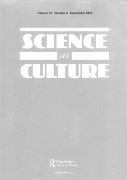 |
|
|
DIY research in the psychonaut subculture. The New Production of Users, 2016.
Involvement by users in scientific research and product development is applauded by everyone, from company executives to EU policymakers. Missing from this picture are cases where user innovation is emphatically unwelcome, to the point that law enforcement tries to curb it. As a corrective, this chapter investigates DIY in subcultures dedicated to the use of psychedelic drugs.
| 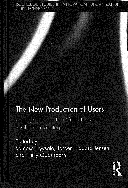 |
|
|
|
|
Users in the Dark: The Development of a User-Controlled Technology. Hacking Europe, 2014.
A few years before a global movement around "makers" and "open hardware" emerged, the Czech Republic was home to a forerunner called "Ronja". The Ronja-project flourished in part thanks to regulations put in place to protect the national telecom monopoly from international competition. When EU intervened, global commodity markets flushed away the demand for Ronja too. This can serve as a reminder of that makers and users, whatever they may think and say, are conditioned by global markets and state actors.
| 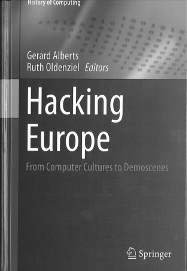 |
|
|
The Cunning of Instrumental Reason: Reproducing Wealth-Without-Money, One 3d-Printer at a Time. Book of Peer Production, 2014.
Under the parole "Darwinian Maxism", Adrian Bowyer begun developing Rep-Rap, a self-reproducing, open source 3D printer. The goal was to undermine the market in 3D printers, as well as markets in every other kind of goods that could be printed on such a machine. The contradictions of Darwinian Marxism serve to illustrate two opposing ideas on how to change the world, one wedded to the self-unfolding development of technology, the other stressing rightful conduct and articulation of conflict.
| 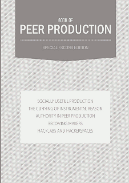 |
|
|
Automating Amateurs in the 3D printing community: Connecting the dots between 'deskilling' and 'user-friendliness. Work Organisation, Labour & Globalisation, 2013.
3D printing originates in numerically controlled (N/C) machinery, which served as a touchstone in debates in the 1980s over Harry Braverman's deskilling thesis. A case study of an open source, home-built 3D printer, called 'Rep-rap', provides an entry point for incorporating some of the critique against the deskilling thesis in an updated, Bravermanian position on user-friendly technology.
| 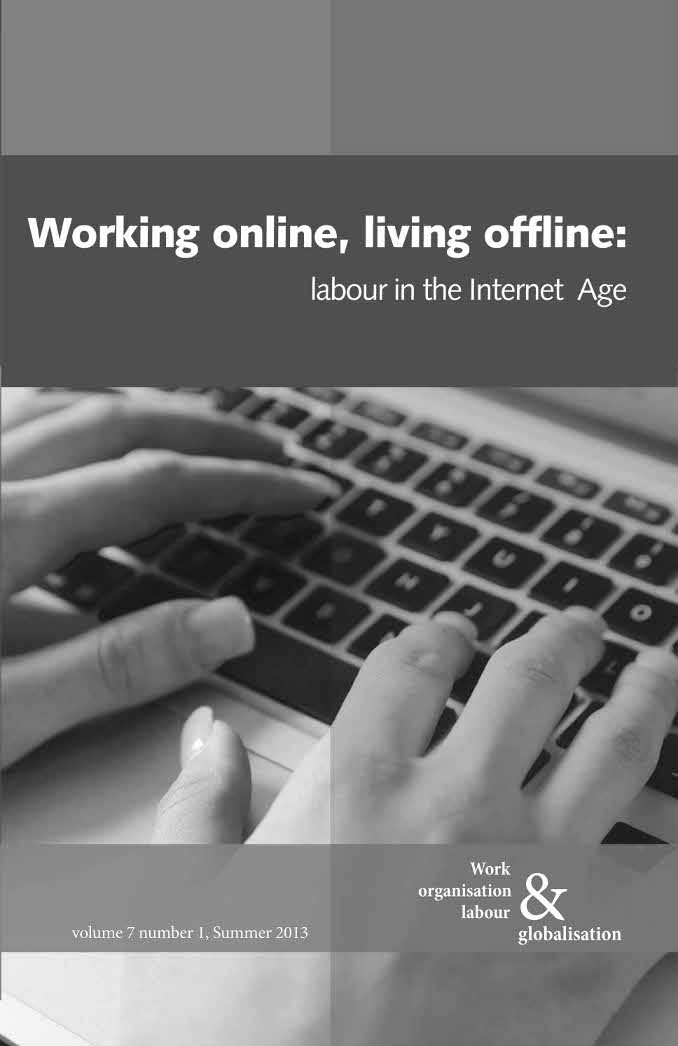 |
|
|
Determining social change: The role of technological determinism in the collective action framing of hackers. New Media & Society, 2013.
Faith in technological determinism is something of a bogeyman in academic literature. Such ideas are said to be anti-democratic since it supposedly puts a hold on popular engagement in politics. In this paper, the hacker movement is taken as an example of how technological deterministic claims can be mobilised in support of grassroots activism. The basic claim is that narratives about determinism are under-determined, and, hence, they can be appropriated for various kind of uses.
|
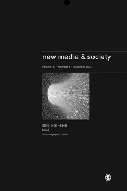 |
|
|
|
|
Atoms want to be free too! Expanding the critique of intellectual property to physical goods. Triple-C, co-author Adel Daoud, 2012.
Atoms are the new bits, according to the Californian trade press. What do we get when this slogan is sampled with the old rallying cry: "information wants to be free"? We propose that this new imaginary destabilises the predominant, bounded critique of intellectual property and opens the door for a critique of all kinds of private property.
|
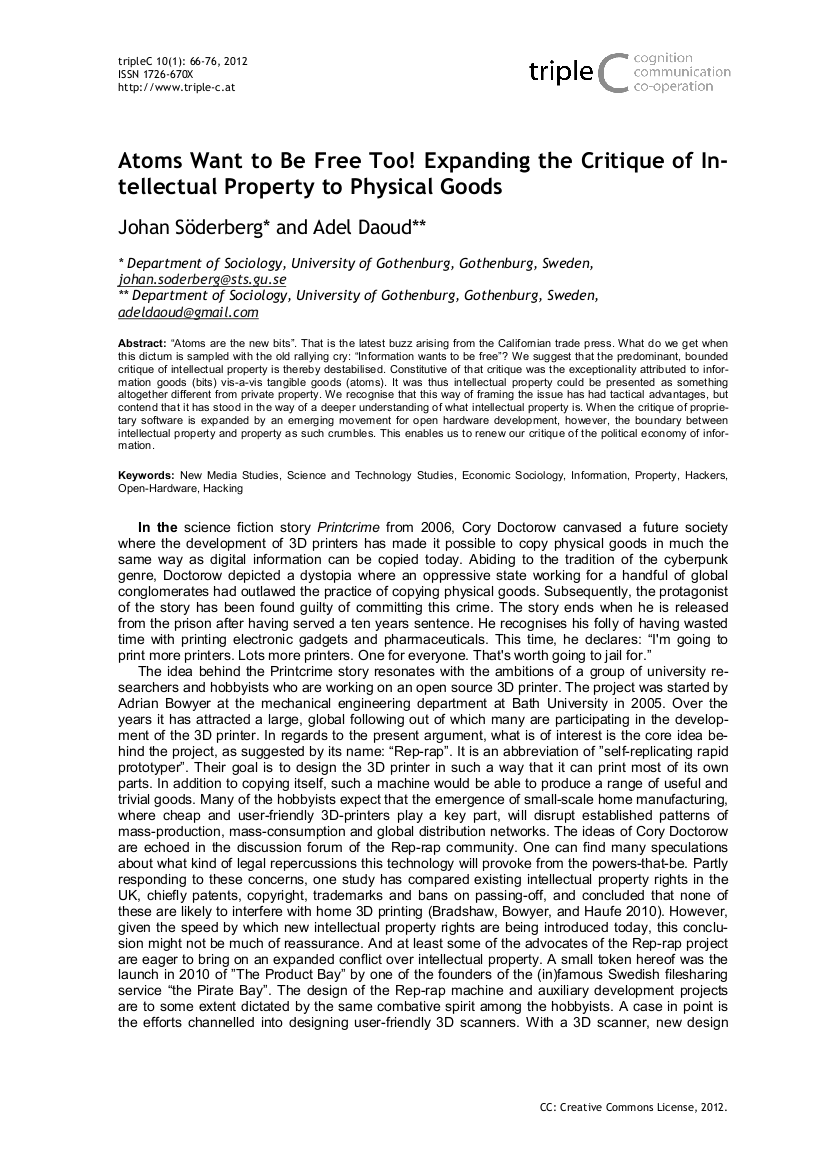 |
|
|
Free Space Optics in the Czech wireless community: Shedding some light on the role of normativity for user-initiated innovations. Science, Technology & Human Values, 2011.
Scholars working in he field of Innovation Studies (IS) have shown that ordinary users contribute to innovations and product development. However, due to the implicit assumptions of much IS research, users have often been treated as atomistic individuals rather than as members of a community. This paper argues that some cases of user innovation are better understood if one takes the formation of a collective subject as a point of departure.
|
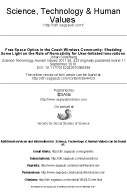 |
|
|
Free Software to Open Hardware: Critical Theory on the Frontiers of Hacking, PhD-thesis, 2011.
In the introduction, a comparison is made between constructivist STS theory and critical theory of technology. The purpose is to find the irreconcilable assumptions in respective intellectual tradition. One such sticking point is the philosophical concept of "totality". This concept is crucial to critical theory and the task it has assigned to philosophical reflection, that is: to raise the eyes above the horizon of the actors and the immediacy in which they are embedded. It is argued that although this point of perspective is not unproblematic, it is nevertheless to be preferred to a standpoint which claims to have abandoned all references to a totality.
|
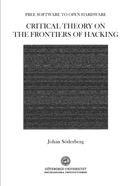 |
|
|
When all that is theory melts into (hot) air: Contrasts and parallels between Actor Network Theory, Autonomist Marxism and Open Marxism.
Ephemera, Theory & Politics in Organization, 10 (2) 2010, co-author Adam Netzén
This paper argues that Actor Network Theory (ANT) and Open Marxism join hands in their polemic against scientism and in their rejection of dichotomous modes of thinking. The first group does so while following a post-structuralist intellectual trend, the second group attempts the same thing from a Hegelian philosophical standpoint. Despite this important difference, their kindredness is suggested by the fact that critics of respective theory have raised similar objections against ANT and Open Marxism.
|
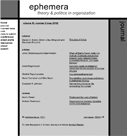
|
|
Reconstructivism versus critical theory of technology: Alternative perspectives on activism and entrepreneurship in the Czech wireless community.
Social Epistemology, 24 (4) 2010, pp. 241-264.
This paper compares two research programmes which have been offered as alternatives to constructivist STS theory. On the one hand "critical theory of technology", on the other hand "reconstructivism". The first school is endorsed, since it marks a break with the basic presumptions of constructivism. Critical theory provides the theoretical tools missing out from both constructivism and its off-spring, reconstructivism.
| 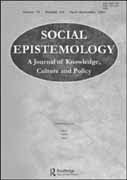 |
|
|
Misuser inventions and the invention of the misuser: hackers, crackers, filesharers. Science as Culture, 19 (2) 2010, pp. 151-179.
This paper points out a rift in much literature about hackers, where discussions about benevolent users (free software developers) and maverick misusers (crackers, pirates) tend to be hermetically separated. This hides from view the fact that these people are using the same technology, belong to the same subculture, and, in some cases, is one and the same person. By putting the limelight on the construction of the misuser, the article calls attention to the relevance of antagonistic relations when discussing user-centred innovation and lay expertise.
| 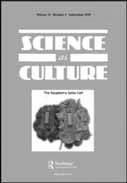 |
|
|
Hackers GNUnited, in: (ed.) Stian Eide, Free Beer, Lulu, 2009. (translated by Nicolás Raynold to spanish) ¡Hackers GNUníos!. in: (ed.) Nicolás Raynold, En Defensa del Software Libre , 2010.
In this book chapter, the suggestion is made that free software licenses can be interpreted as a kind of collective bargaining. Free software programmers have created a new market for their labour where they have a better bargain position than they would have had if they were working with proprietary software tools.
| 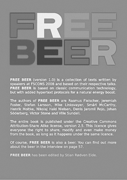 |
|
|
Var så god att älska det immateriellrättsliga ägandet också!. in: (eds.) Jonas Andersson & Pelle Snickars, Efter The Pirate Bay, Kungliga Biblioteket, 2010.
(Swedish) This book chapter makes the case that intellectual property should be understood as a property right, not as a state-granted monopoly. It then becomes possible to make sense of the rapid expansion of intellectual property laws.
| 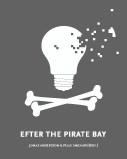 |
|
Hacking as labour struggle. Capital & Class, spring 97, 2009, co-author George Dafermos.
Free software development is here interpreted from a labour process theory point of perspective. Through a close read of trade journals from the 1960s and onwards, this paper demonstrates that managers and business journalists called for the same kind of routinisation and disciplining of programming work as they had previously done in regards to blue-collar factory work. Accordingly, the birth of the free software movement can, at least in part, be interpreted as a response by programmers unhappy about the transformation of their profession.
|
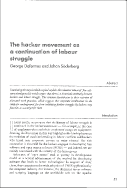 |
|